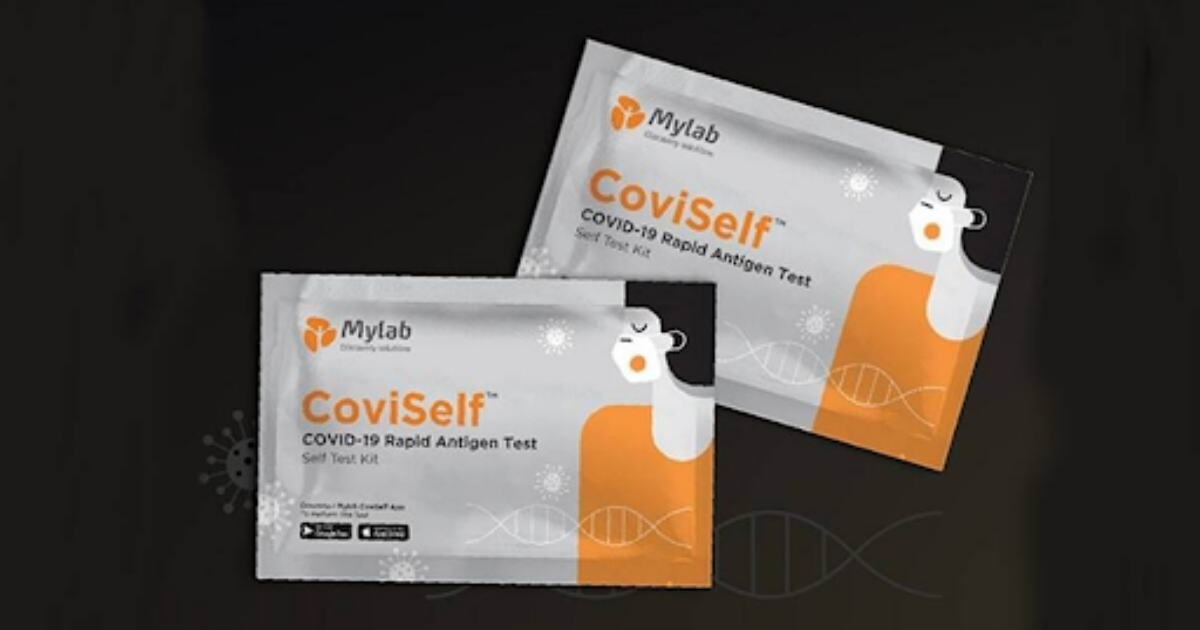In order to break the chain of transmission of the virus, several measures are being taken by governments around the globe. As most of the western countries have already allowed self-test for their citizens, India has also developed it’s first home COVID-19 test kit. This really looks promising step towards the efforts to break the chain and our fight against COVID-19.
The Indian Council of Medical Research (ICMR) on Wednesday approved the country’s first COVID-19 self-testing kit for home use. That essentially means anyone can collect their own nasal sample and test it for SARS-CoV-2. The self-use test kit can be used by symptomatic individuals and immediate contacts of confirmed cases as per the ICMR’s guidelines. The test kit, named CoviSelf, will cost Rs 250, and can be bought without a prescription from pharmacies and online, the company said. The test requires the user to download an app on their mobile phone, but will not need a healthcare professional to collect a swab sample.
How does a self-test kit help?
Many states are going through a second wave of infections, putting pressure on diagnostics laboratories. The RT-PCR test, considered the gold standard for COVID-19 testing, takes 3-4 days to give results, delaying hospitalisation and treatment. Self-test kits can potentially be a game-changer in COVID-19 management in India. These can cut queues in laboratories, reduce costs, dissipate the burden on existing manpower for sample collection from homes, and provide quick results (within 15 minutes), leading to prompt treatment and isolation.
Such a self-test kit was first approved in the US last November. A rapid-result all-in-one test kit produced by Lucira Health was given emergency use authorization. Similar kits have been approved in Europe and South Korea too.
What is the kit approved by ICMR?
CoviSelf has been developed by MyLab Discovery Solutions, a Pune-based molecular company. It uses a rapid antigen test, in which a nasal swab sample is tested for the virus and gives results within 15 minutes. Taking the test takes hardly two minutes. This testing kit cost Rs 250, while RT-PCR test costs between Rs 400 to Rs 1,500 and a rapid antigen test in laboratory costs Rs 300-900 in different states.
“For India, we will make millions of kits available at a fraction of the cost of such kits in the US,” said Dr Hasmukh Rawal, managing director in MyLab. MyLab’s current production capacity is 70 lakh kits per week, and it plans to scale up to one crore kits per week in the next fortnight. The kits will be available across at least seven lakh chemists and e-pharmacy portals in India, the company said.
“This easy-to-use test combines with MyLab’s AI-powered mobile app so that a user can know his/her positive status, submit the result to ICMR directly for traceability, and know what to do next in either result. We are sure this small step will be a big leap in mitigating the second and subsequent waves,” said Sujit Jain, director, MyLab Discovery Solutions.
Who can use this test?
ICMR has advised this test only for those who have symptoms or are high-risk contacts of positive patients and need to conduct a test at home. If positive, the person will be considered COVID-19 positive and will not require RT-PCR as a confirmatory test. All government guidelines for isolation and high-risk contact tracing will be followed. This test is synced with a mobile app, CoviSelf, which will help directly feed the positive case’s report on the ICMR portal. This test is not advised for general screening in public places of hawkers, show owners, or commuters. If a person tests negative but has symptoms, he or she has to undergo an RT-PCR test.
How do I test myself?
The kit comes with a pre-filled extraction tube, sterile nasal swab, a testing card, and biohazard bag. First download the CoviSelf app and enter all your details. The app will capture data on a secure server connected with the ICMR portal, where all test reports are available to the government. Before taking the test, sanitise your hands and clean the surface on which the kit is to be placed. Insert the swab into your nose 2-4 cm inside, or until it touches the back of the nasal tract, and rub it well to collect the specimen. The swab is then swirled inside the extraction tube to mix with the liquid inside, the tube is tightly closed, and two drops from the extraction tube’s outlet are spilled onto the testing card.
The result comes within 15 minutes. A person is positive for COVID-19 if two lines appear on the testing card — on marker ’t’ for the testing line, and ‘c’ for quality control line. If the person is negative, a single line appears on marker ‘c’. If the result takes more than 20 minutes to show, or if a line does not flash across marker ‘c’, then the test is invalid. Seal the tube and swab in the biohazard bag and dispose of it as biomedical waste.

